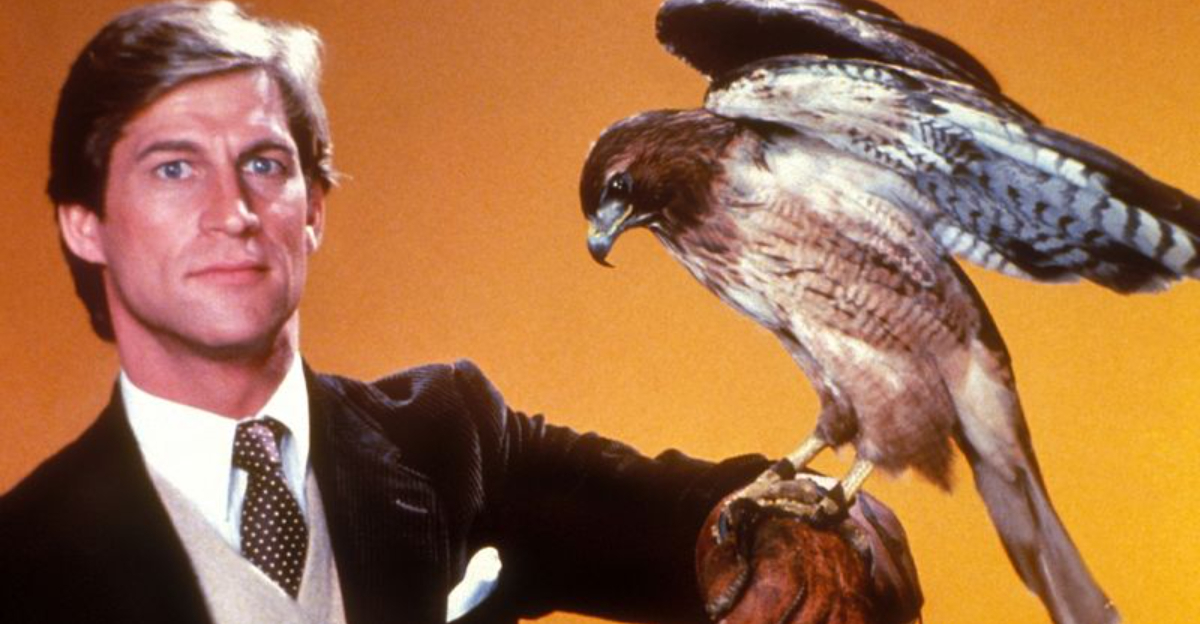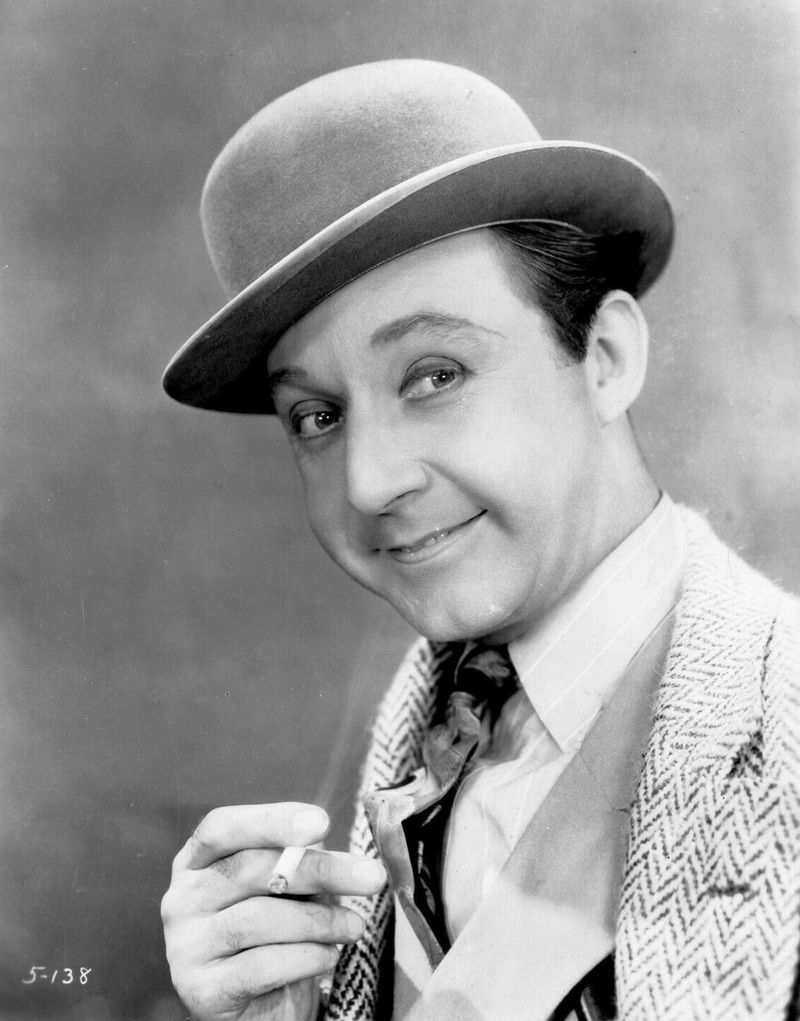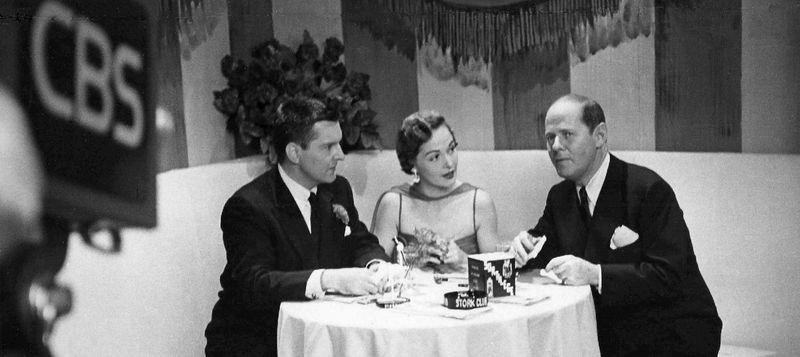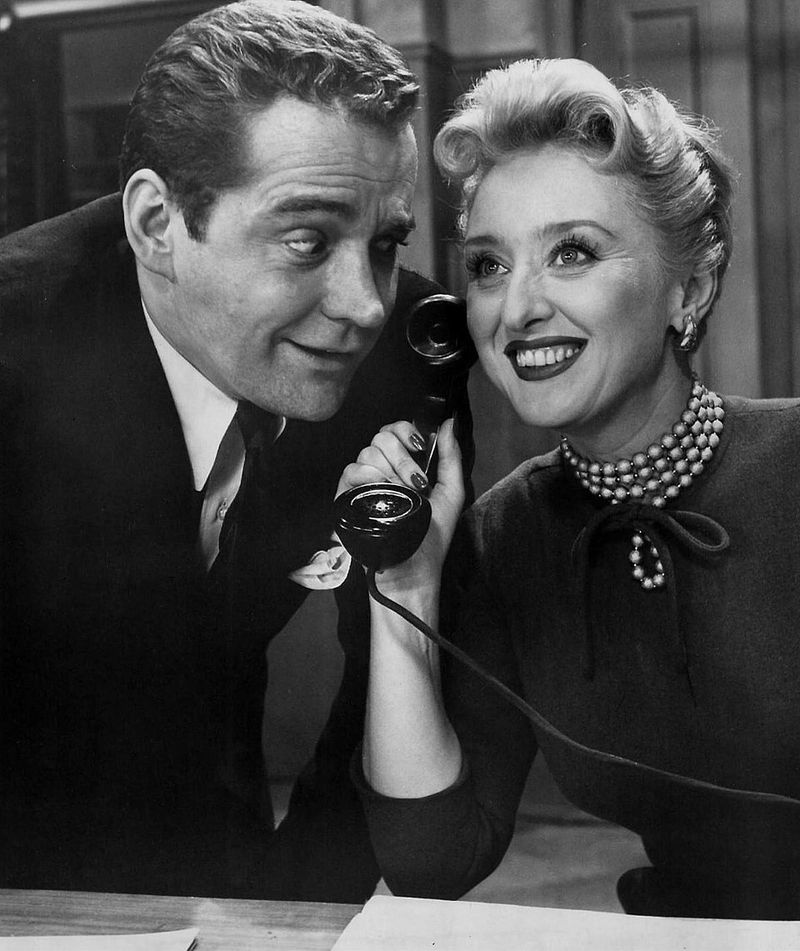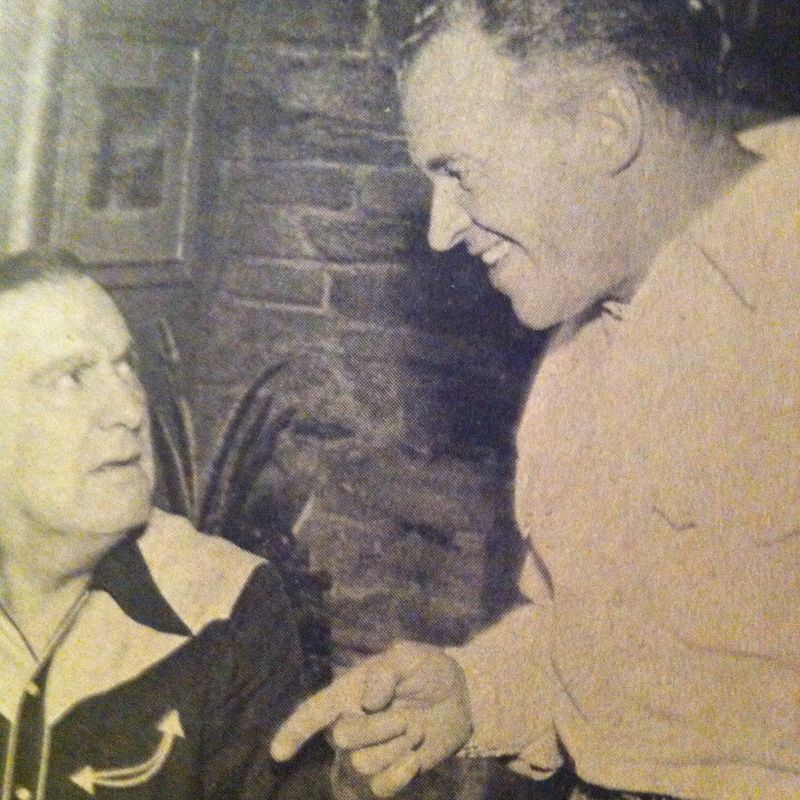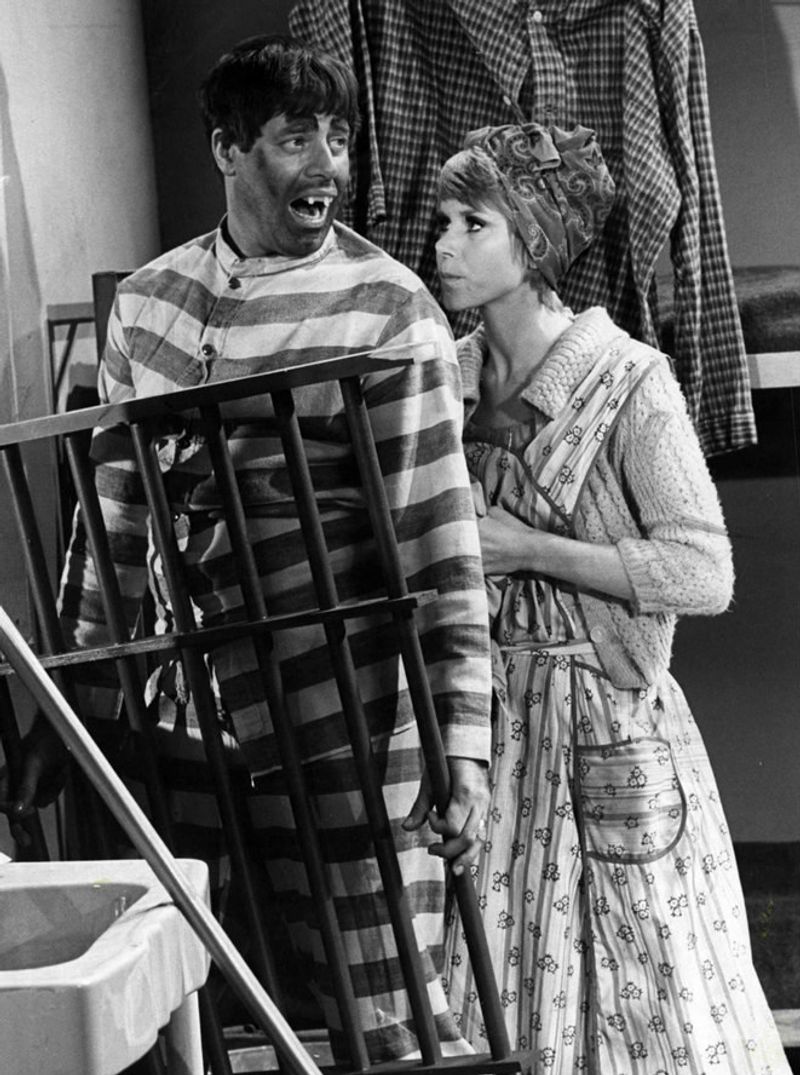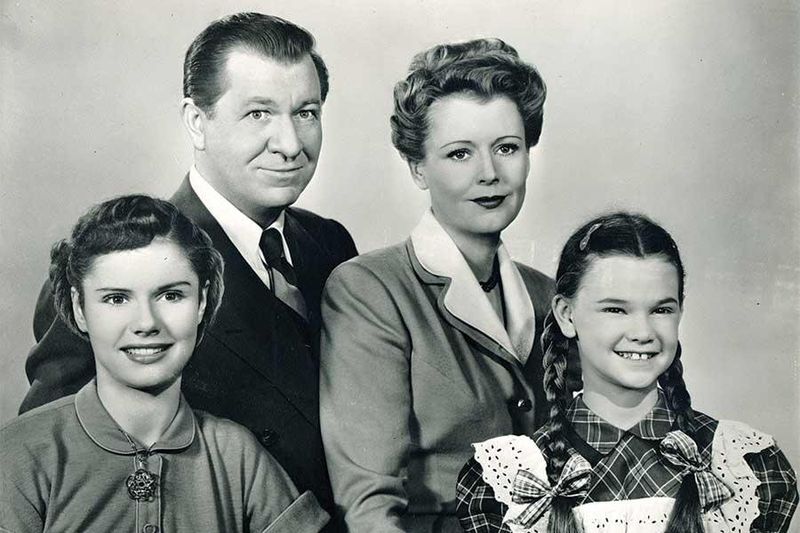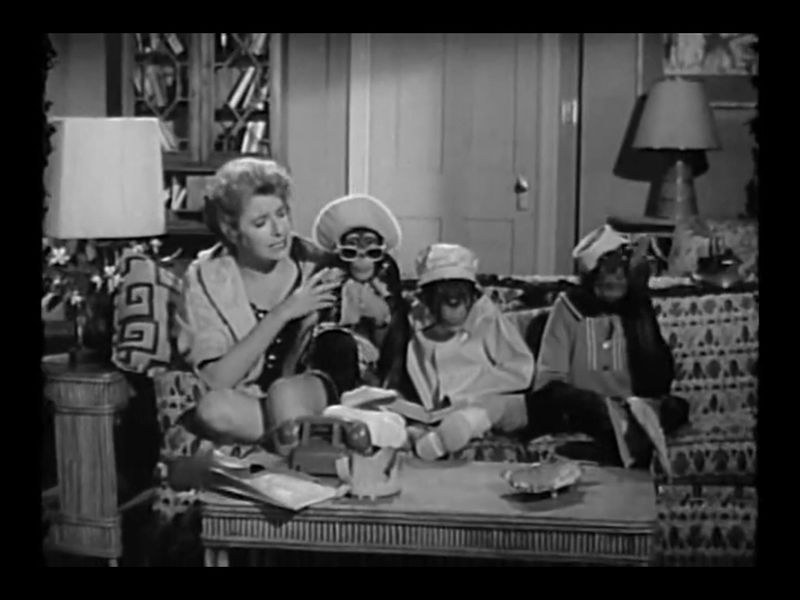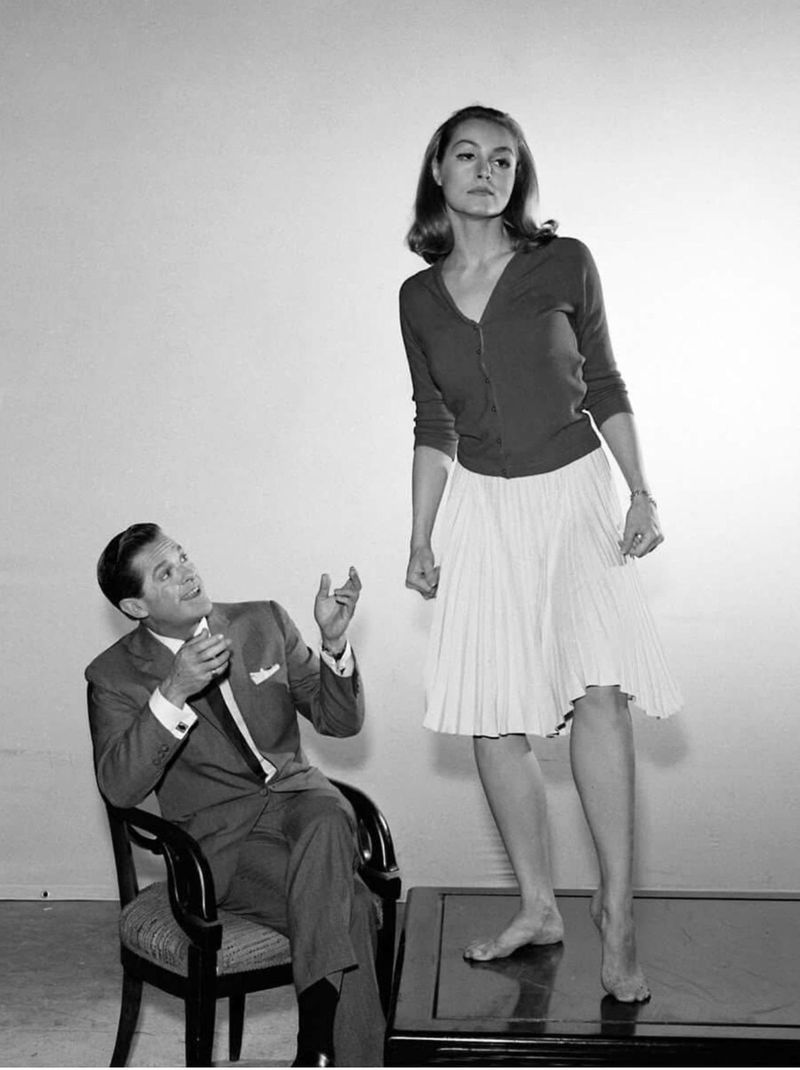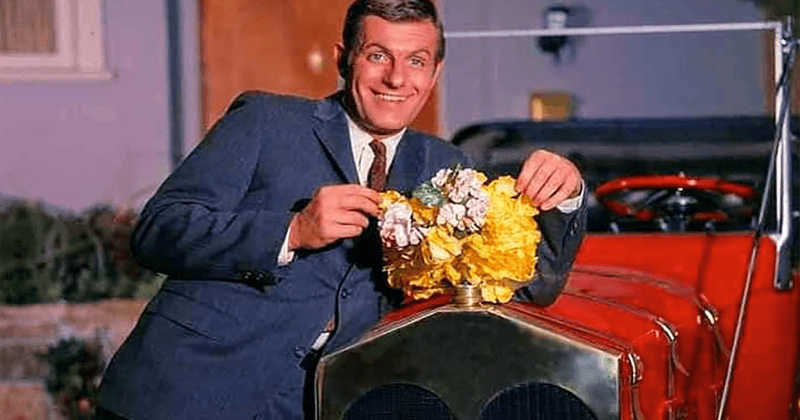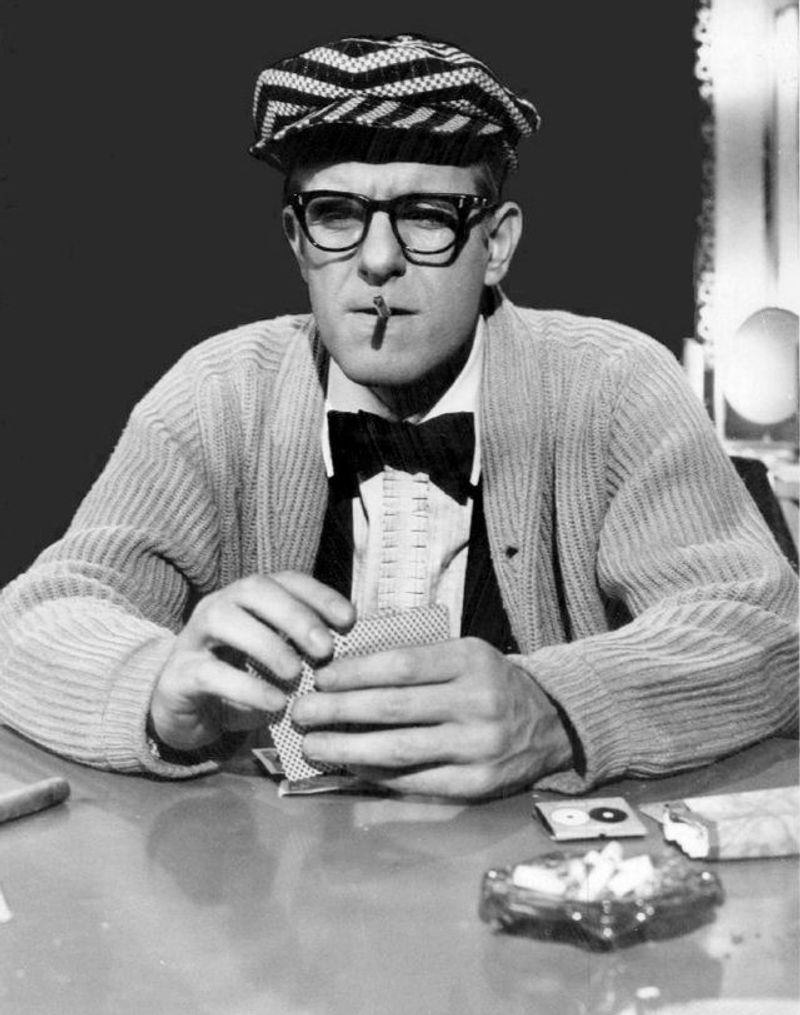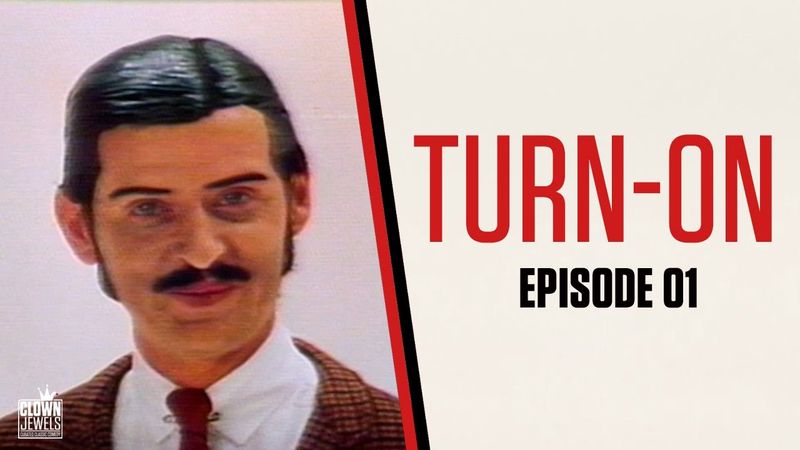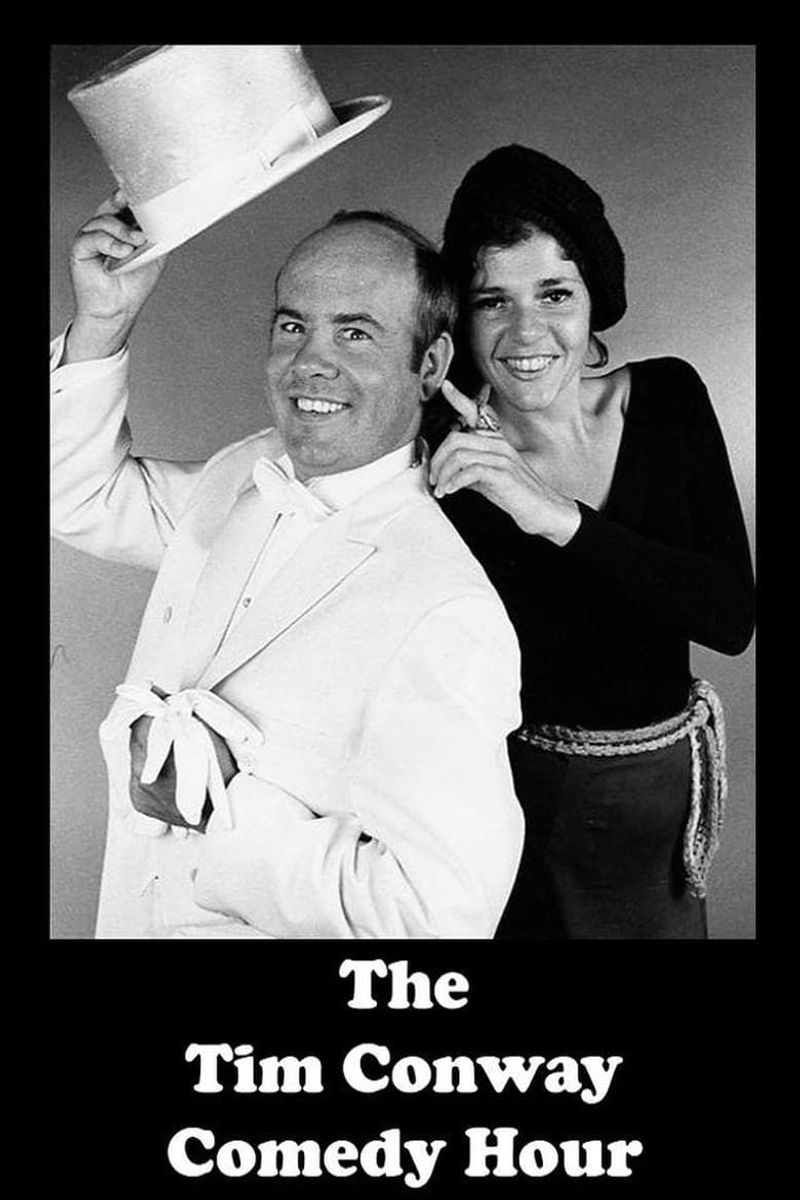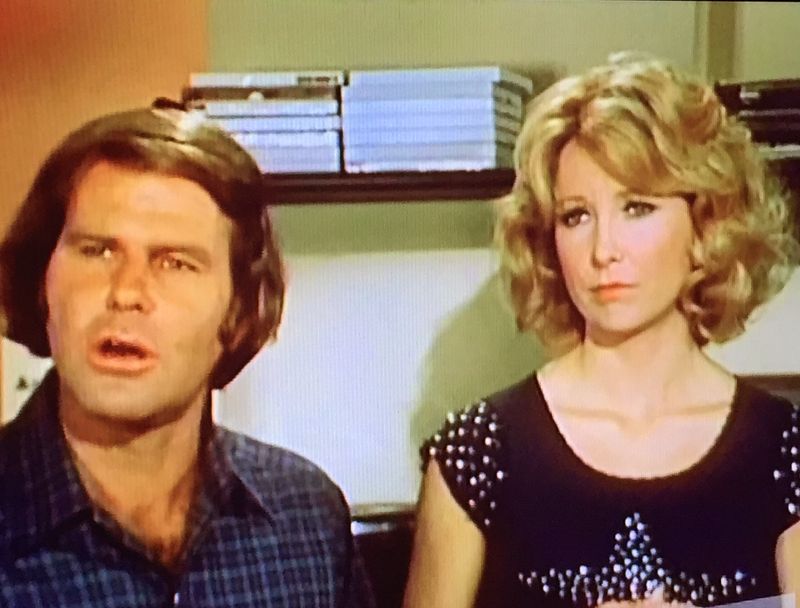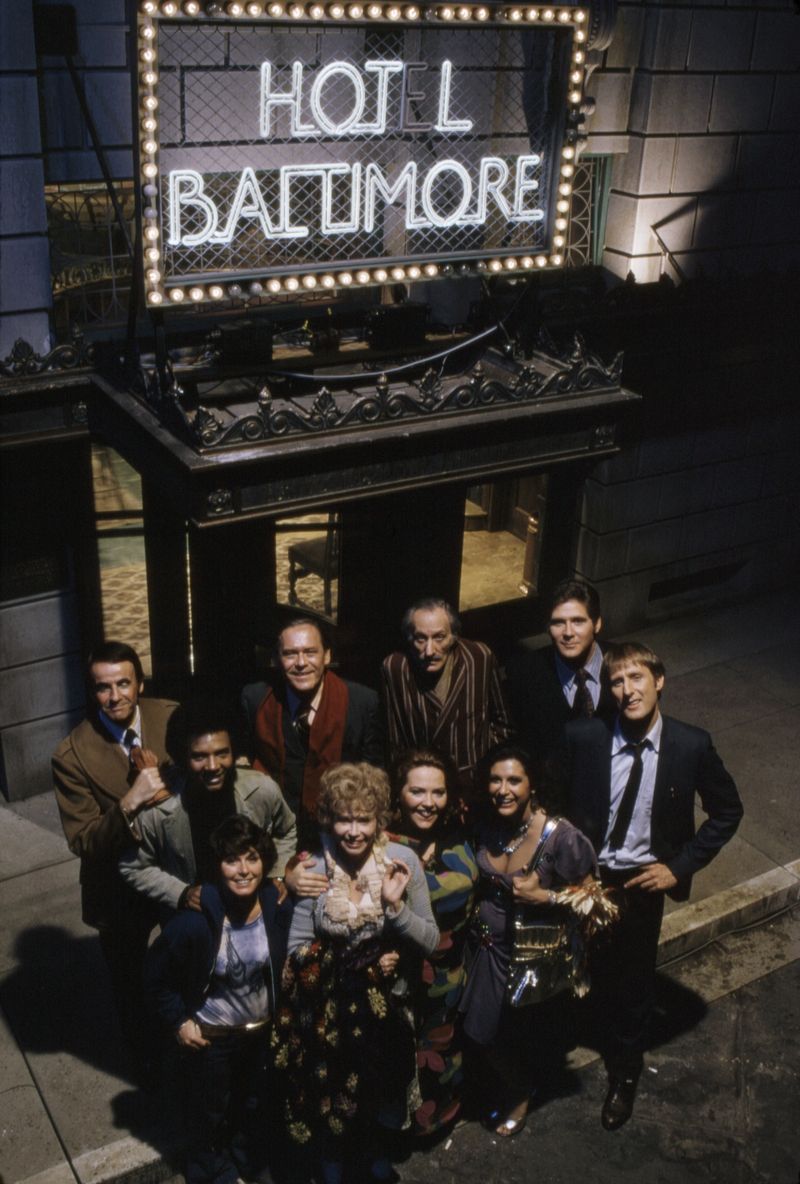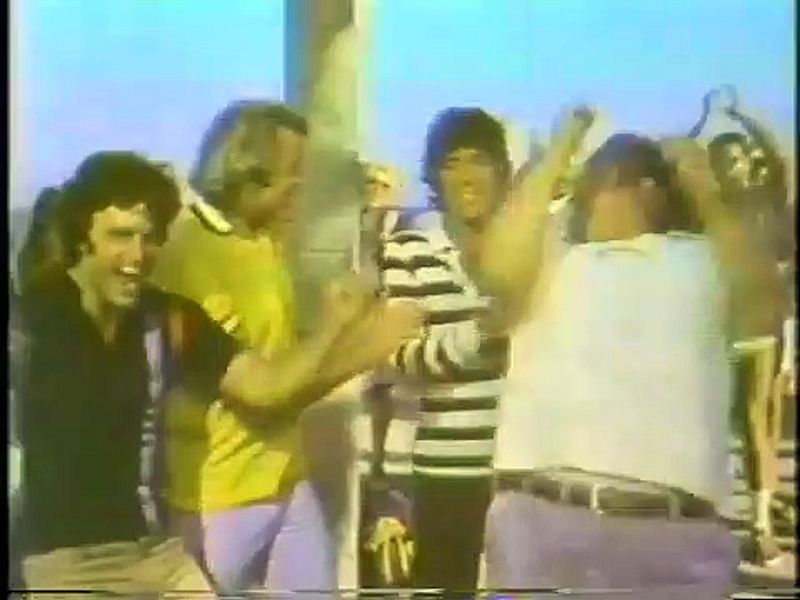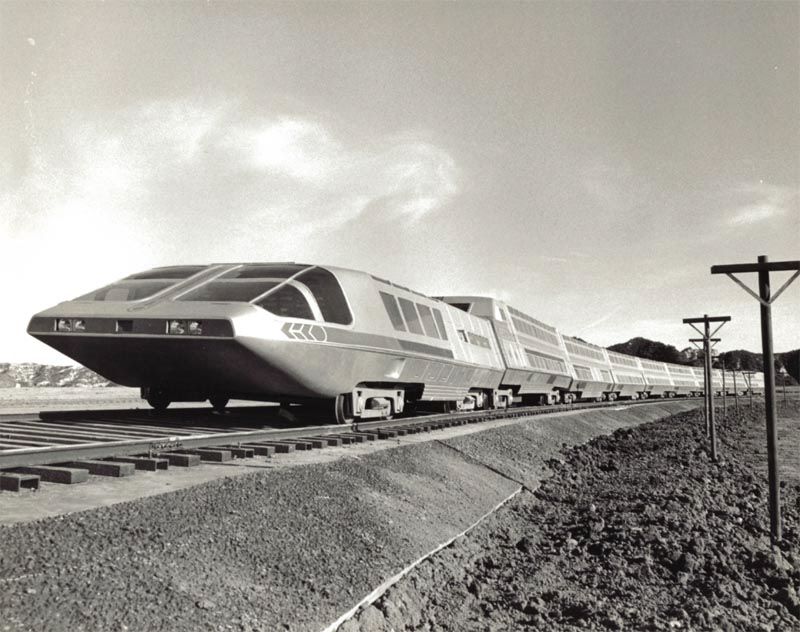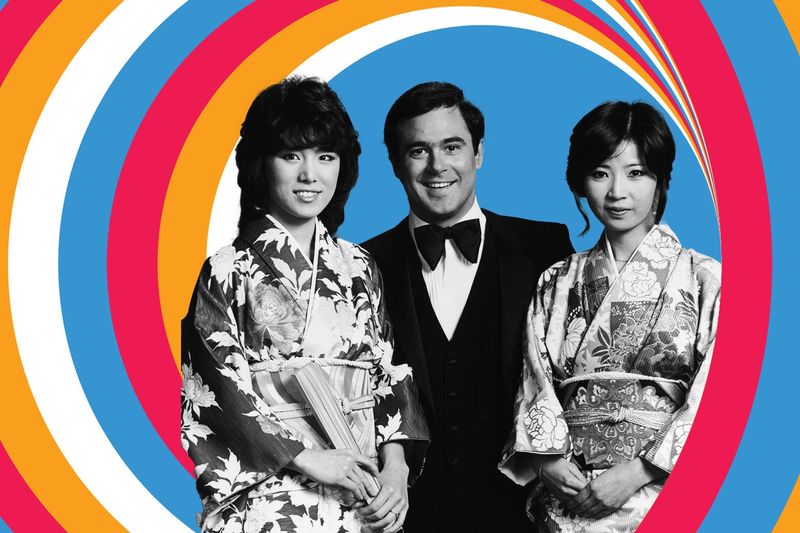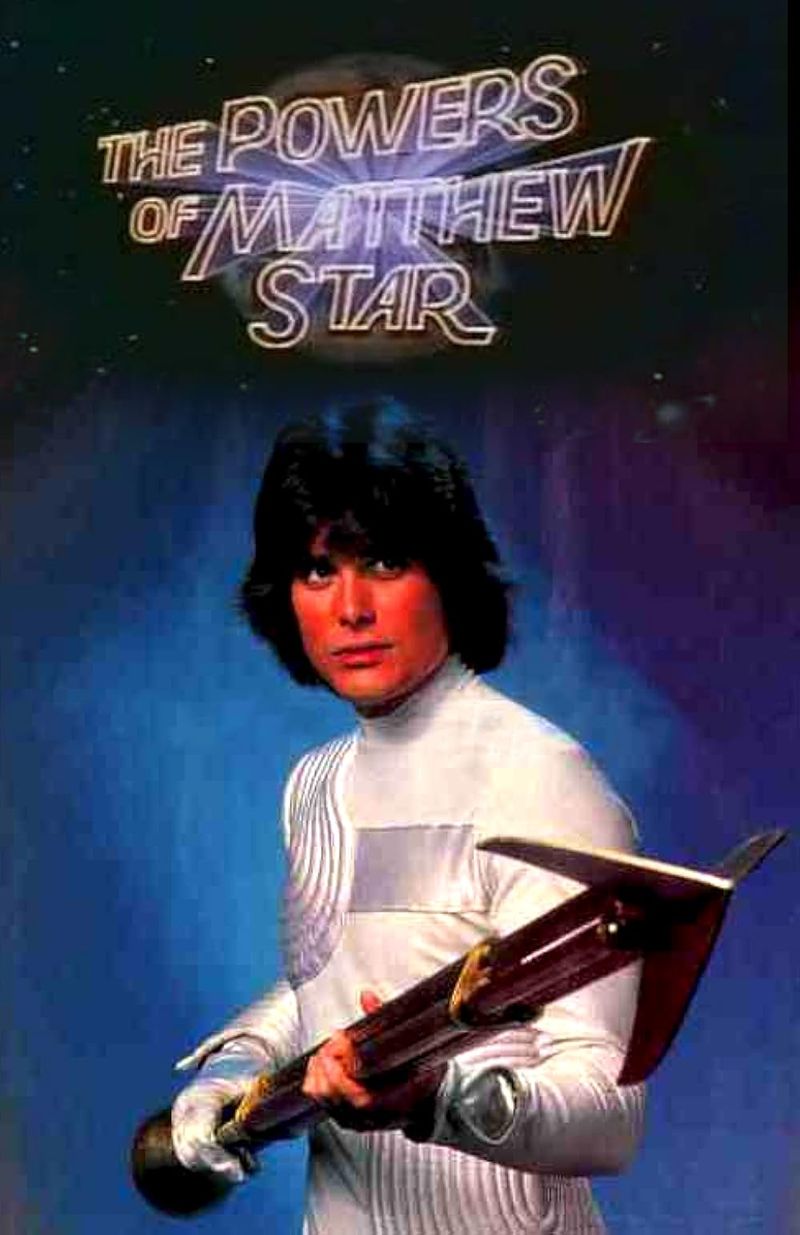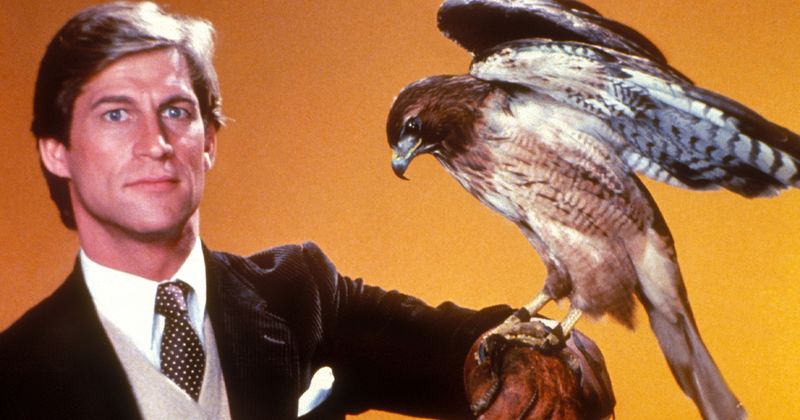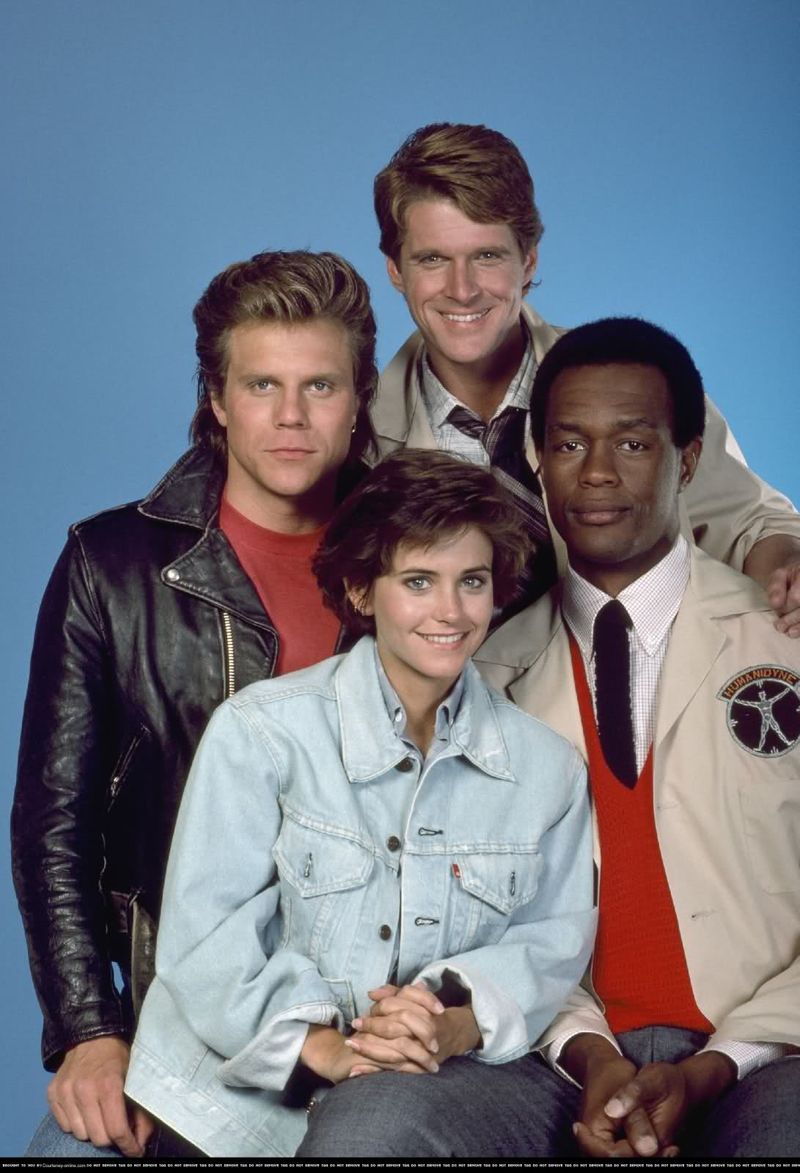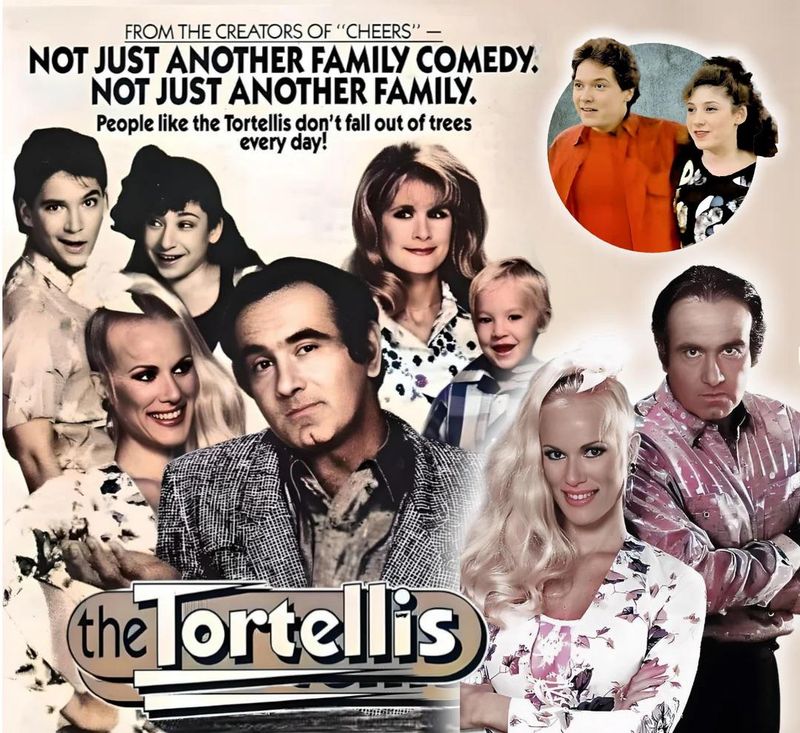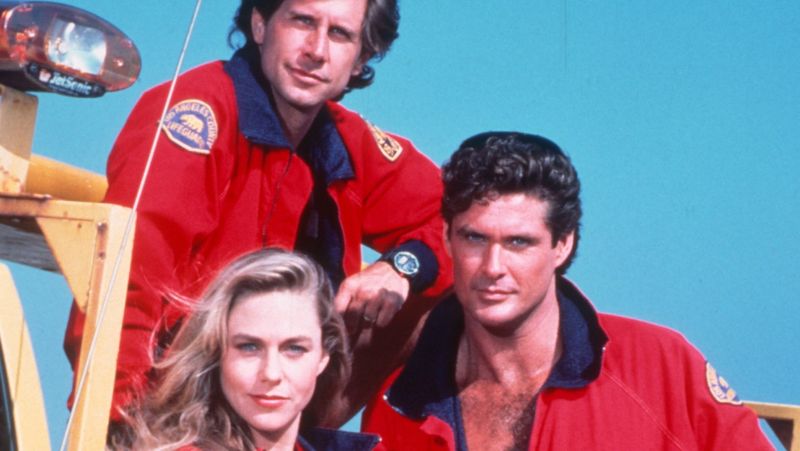The world of television is filled with shows that capture our hearts, but there are also those that miss the mark entirely. This post explores the most-hated TV show of each year, from the 1950s to the 1980s.
Whether due to poor execution, controversial themes, or simply failing to resonate with audiences, these shows are infamous for all the wrong reasons. Join us as we delve into a less-celebrated side of TV history.
1. 1950 – The Hank McCune Show
The Hank McCune Show is notorious for being one of the earliest TV sitcoms to employ a laugh track, which many viewers found irritating rather than amusing. Despite its innovative approach, the show failed to connect with audiences and was quickly canceled. Some critics argue that the laugh track felt forced, disrupting the natural comedic flow. The show’s legacy remains as a cautionary tale in the history of television production, illustrating how even groundbreaking ideas can falter without proper execution.
2. 1951 – The Stork Club
The Stork Club, based on the famous New York nightclub, promised to bring the glitz and glamour of high society to TV screens. However, it stumbled with uninspired storytelling and lackluster performances that left viewers unimpressed. The allure of the Stork Club couldn’t translate to engaging television, leading to its swift cancellation. Despite its short lifespan, the show remains a fascinating glimpse into the challenges of adapting real-world icons to the small screen.
3. 1954 – Honestly, Celeste!
Honestly, Celeste! attempted to capture the whimsical life of a young woman with a penchant for getting into trouble. Unfortunately, the show’s charm was overshadowed by predictable plots and a lack of character development. Critics noted that the series relied too heavily on clichés, failing to offer viewers anything fresh or engaging. Despite its appealing premise, the show struggled to maintain interest, becoming a footnote in television history.
4. 1956 – Colonel Humphrey Flack
Colonel Humphrey Flack followed the adventures of a con artist with a heart of gold. Although the premise was intriguing, the series was marred by inconsistent writing and underwhelming comedy, leaving audiences wanting more. Its attempt to blend humor and drama fell flat, making it difficult for viewers to connect with the characters’ antics. The show serves as an example of how even promising ideas can falter without a cohesive vision.
5. 1957 – The Jerry Lewis Show
The Jerry Lewis Show aimed to highlight the comedic genius of Jerry Lewis, but it struggled to capture the magic that made his films successful. The show was criticized for its uneven pacing and lack of innovation, which left audiences underwhelmed. Although Lewis was a beloved figure in the entertainment industry, his transition to television was less than smooth, resulting in a series that failed to live up to expectations.
6. 1959 – Trouble with Father (aka The Stu Erwin Show)
Trouble with Father, also known as The Stu Erwin Show, offered a comedic take on family life but faced criticism for its formulaic approach. The series struggled with repetitive storylines that offered little in terms of originality or depth. Viewers found it difficult to engage with characters who felt more like stereotypes than real people. Despite its intention to depict relatable family dilemmas, the show ultimately fell short of making a lasting impact.
7. 1961 – The Hathaways
The Hathaways stood out for its unusual premise of a family adopting three chimpanzees as part of their household. However, the show was widely panned for its improbable storylines and awkward humor. Viewers were unable to connect with the absurdity, leading to its failure to capture a loyal audience. While its unconventional setup promised potential, the execution left much to be desired, making it a notable flop in TV history.
8. 1963 – My Living Doll
My Living Doll introduced audiences to a scientist and his lifelike female robot, exploring themes of control and technology. Despite its attempt to tap into the burgeoning interest in science fiction, the show failed to engage viewers due to its simplistic plots and lack of character depth. Critics noted that the series leaned too heavily on superficial gimmicks rather than developing a compelling narrative. Its ambitious concept couldn’t overcome flawed execution.
9. 1965 – My Mother the Car
My Mother the Car is often cited as one of the most bizarre TV shows, featuring a man whose deceased mother is reincarnated as his car. The show struggled to find an audience, as its outlandish concept left many viewers perplexed rather than entertained. Critics derided the series for its absurdity and lack of comedic depth. Despite its potential for humor, the show became infamous for its peculiar premise rather than its execution.
10. 1967 – Accidental Family
Accidental Family followed a comedian who becomes a single father, a premise ripe with potential for heartfelt comedy. However, the series struggled with uninspired writing and predictable plots that failed to capture the complexities of its central theme. Viewers found it difficult to invest in characters that lacked depth and relatability. Despite its attempt to balance humor and sentiment, the show was unable to leave a lasting mark on audiences.
11. 1969 – Turn-On
Turn-On was an ambitious attempt at creating an experimental comedy series, but its rapid-fire pacing and unconventional humor alienated viewers. The show was canceled after just one episode, marking it as a legendary television failure. Critics and audiences alike were baffled by its abstract approach, which lacked coherence and accessibility. Despite its intention to push boundaries, Turn-On serves as a reminder of the risks involved in experimental TV.
12. 1970 – The Tim Conway Comedy Hour
The Tim Conway Comedy Hour sought to capitalize on Tim Conway’s comedic talent, but the show struggled with inconsistent sketches and lackluster writing. Audiences found it hard to engage with the humor, which often felt disjointed and uninspired. Despite Conway’s popularity, the series failed to capture the charm that marked his other successes. Its short-lived run highlights the challenges of translating comedic brilliance into a successful variety show.
13. 1973 – The Girl with Something Extra
The Girl with Something Extra introduced audiences to a woman with telepathic abilities, a concept that promised intrigue but fell flat in execution. The show was criticized for its predictable plots and lack of character development. Viewers were left wanting more depth and substance from the series, which relied too heavily on its gimmick without exploring its full potential. Despite its interesting premise, the show struggled to resonate with audiences.
14. 1975 – Hot L Baltimore
Hot L Baltimore was an adaptation of a successful stage play, bringing an ensemble of quirky characters to TV. However, the show struggled to translate the play’s charm to the screen, facing criticism for its lack of depth and uneven tone. Audiences found it difficult to connect with the characters, whose eccentricities overshadowed genuine storytelling. Despite its potential for humor and drama, the series failed to make a lasting impact.
15. 1977 – The San Pedro Beach Bums
The San Pedro Beach Bums followed a group of carefree young men living by the beach, a premise full of potential for comedy and adventure. Unfortunately, the series was criticized for its shallow storytelling and lack of character development. Viewers found it hard to invest in a show that offered little beyond its initial concept. Despite its breezy setting, the series struggled to find an audience, becoming a footnote in television history.
16. 1979 – Supertrain
Supertrain was one of the most expensive TV shows of its time, featuring a luxury train with adventure and intrigue on board. However, the series was plagued by a lack of coherent storytelling and underwhelming special effects. Despite its high production values, the show struggled to deliver on its grand promises, leading to its quick cancellation. Supertrain remains a cautionary tale of how ambition without substance can derail even the most promising projects.
17. 1980 – Pink Lady and Jeff
Pink Lady and Jeff attempted to blend Japanese pop culture with American comedy, an ambitious endeavor that fell short of expectations. The language barrier and cultural differences created a disconnect, resulting in awkward sketches that failed to engage audiences. Despite the popularity of Pink Lady in Japan, the show couldn’t find its footing in the US market. Its short-lived run underscores the challenges of cross-cultural entertainment on television.
18. 1982 – The Powers of Matthew Star
The Powers of Matthew Star offered a blend of science fiction and teen drama, following a teenage alien prince hiding on Earth. Despite its intriguing premise, the show struggled with inconsistent writing and special effects that failed to captivate. Audiences found it difficult to connect with the characters, who often felt one-dimensional. The series serves as an example of how even promising concepts can falter without strong execution and vision.
19. 1983 – Manimal
Manimal followed a crime-fighting protagonist with the ability to transform into animals, a concept that promised excitement but delivered disappointment. The series was criticized for its outdated special effects and thin storylines that couldn’t sustain viewer interest. Despite the potential for thrilling adventures, the show became a symbol of TV excess and poor execution. Its brief run highlights the challenges of balancing creativity with practicality in television production.
20. 1985 – Misfits of Science
Misfits of Science brought together a group of young scientists with extraordinary abilities, aiming for a mix of adventure and comedy. However, the show struggled with inconsistent storytelling and character development that left viewers wanting more. Despite its attempt to capture the spirit of innovation and teamwork, the series faltered, unable to sustain audience interest. It serves as a reminder of the importance of cohesive vision in bringing creative concepts to life on screen.
21. 1987 – The Tortellis
The Tortellis, a spinoff of the successful series Cheers, focused on the family of character Nick Tortelli. Despite its connection to a beloved show, The Tortellis struggled to establish its identity and draw in viewers. Criticized for uninspired plots and lack of depth, the show failed to capture the charm that made its predecessor a hit. Its brief run serves as a lesson in the challenges of spinoffs, highlighting the need for distinct storytelling and engaging characters.
22. 1989 – Baywatch (NBC original run)
Baywatch’s original run on NBC faced criticism for its melodramatic plots and emphasis on style over substance. Despite its later success in syndication, the initial series struggled to find its footing, leading to its early cancellation. Viewers were drawn to the picturesque settings and attractive cast but found the storytelling lacking. The show’s journey from initial failure to worldwide phenomenon underscores the unpredictable nature of television success and the power of reinvention.
